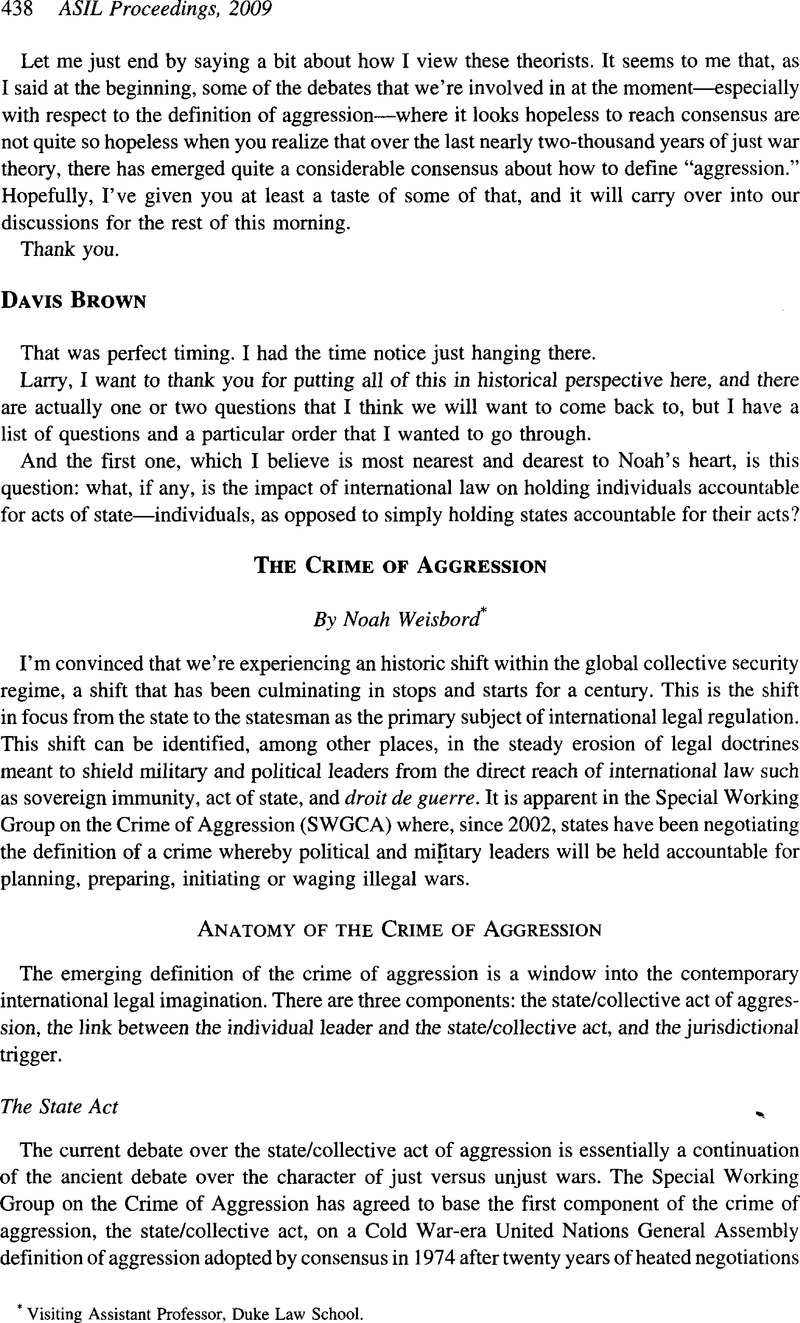No CrossRef data available.
Published online by Cambridge University Press: 28 February 2017

1 Aggression is the use of armed force by a state against the sovereignty, territorial integrity, or political independence of another state, or in any other manner inconsistent with the Charter of the United Nations, as set out in this definition.
2 Invasion, bombardment, blockade, attacking the armed forces of another state, contravening an agreement to station forces in another state, allowing one’s territory to be used by another state to attack a third state, the sending of armed bands.
3 I consider the emerging concept of aggression in more detail in my forthcoming article, Weisbord, Noah, Conceptualizing Aggression, 20 (1) Duke J. Comp. & Int’l L. 1-68 (2009)Google Scholar.
4 Discussion Paper Proposed by the Chairman, art. 1(a), (b), ICC-ASP/5/SWGCA/2 (Jan. 16, 2007), available at <http://www.icc-cpi.int/library/asp/ICC-ASP-5-SWGCA-2_English.pdf>; Non-Paper by the Chairman on defining the individual’s conduct, Annex II to the Report of the Special Working Group on the Crime of Aggression, Informal inter-sessional meeting of the Special Working Group on the Crime of Aggression, held at the Liechtenstein Institute on Self-Determination, Woodrow Wilson School, Princeton University, United States, from 11 to 14 June 2007.
5 Non-Paper by the Chairman on defining the individual’s conduct, supra note 4, (“Without disregarding the different preferences of individual States, it is probably fair to say that no one present at Princeton 2007 would stay in the way of consensus about the conduct clause were the Review Conference tomorrow.”).
6 The SWGCA has agreed that attempts will not attract responsibility for the crime of aggression.